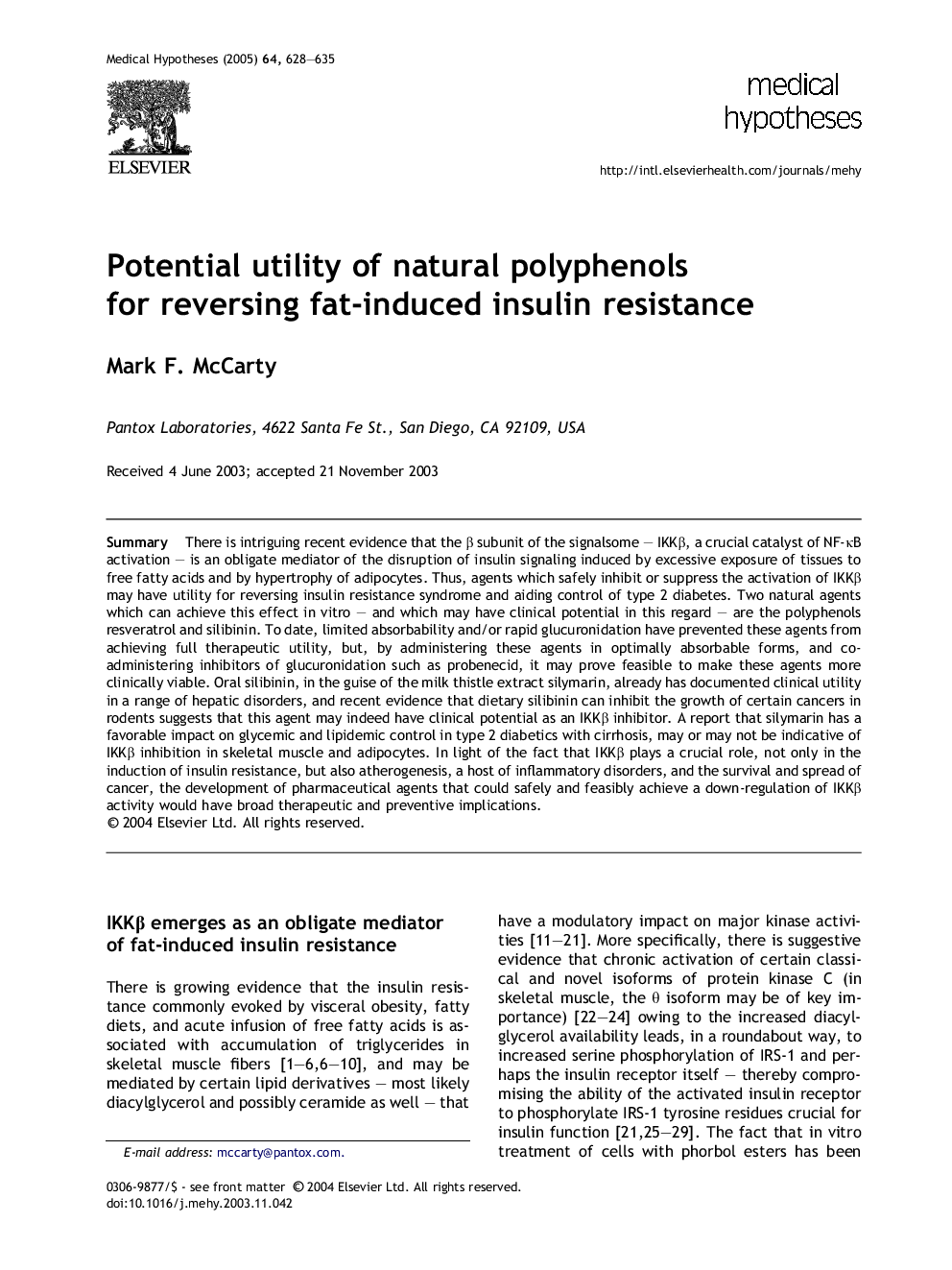| Article ID | Journal | Published Year | Pages | File Type |
|---|---|---|---|---|
| 8995931 | Medical Hypotheses | 2005 | 8 Pages |
Abstract
There is intriguing recent evidence that the β subunit of the signalsome - IKKβ, a crucial catalyst of NF-κB activation - is an obligate mediator of the disruption of insulin signaling induced by excessive exposure of tissues to free fatty acids and by hypertrophy of adipocytes. Thus, agents which safely inhibit or suppress the activation of IKKβ may have utility for reversing insulin resistance syndrome and aiding control of type 2 diabetes. Two natural agents which can achieve this effect in vitro - and which may have clinical potential in this regard - are the polyphenols resveratrol and silibinin. To date, limited absorbability and/or rapid glucuronidation have prevented these agents from achieving full therapeutic utility, but, by administering these agents in optimally absorbable forms, and co-administering inhibitors of glucuronidation such as probenecid, it may prove feasible to make these agents more clinically viable. Oral silibinin, in the guise of the milk thistle extract silymarin, already has documented clinical utility in a range of hepatic disorders, and recent evidence that dietary silibinin can inhibit the growth of certain cancers in rodents suggests that this agent may indeed have clinical potential as an IKKβ inhibitor. A report that silymarin has a favorable impact on glycemic and lipidemic control in type 2 diabetics with cirrhosis, may or may not be indicative of IKKβ inhibition in skeletal muscle and adipocytes. In light of the fact that IKKβ plays a crucial role, not only in the induction of insulin resistance, but also atherogenesis, a host of inflammatory disorders, and the survival and spread of cancer, the development of pharmaceutical agents that could safely and feasibly achieve a down-regulation of IKKβ activity would have broad therapeutic and preventive implications.
Related Topics
Life Sciences
Biochemistry, Genetics and Molecular Biology
Developmental Biology
Authors
Mark F. McCarty,
